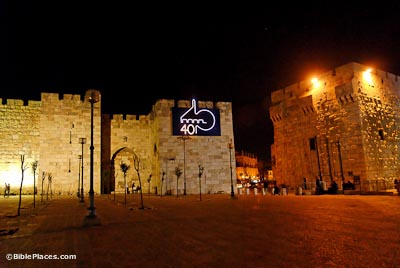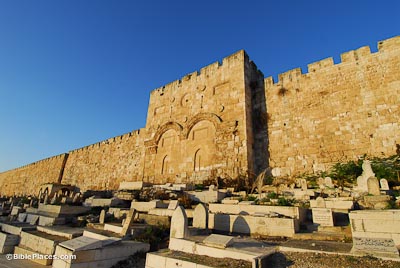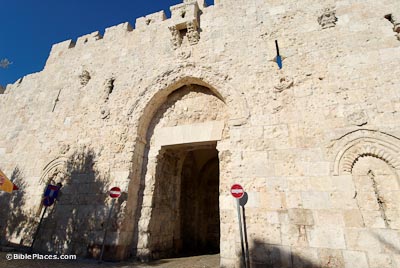
Bible Verse and Prayer for Today;
Create in me a clean heart, O God; and renew a right spirit within me.
Psalm 51:10
Prayer
Lord . All we can Pray Today , Is like the Psalmist Prayed . Lord : Create in me a clean heart, O God; and renew a right spirit within me. This we Pray in Jesus name . Amen and Amen
Prayer Tips
Prayers in the Old Testament
- Isaiah confirms to God
Isa 38:5 Go, and say to Hezekiah, Thus saith the LORD, the God of David
thy father, I have heard thy prayer, I have seen thy tears: behold, I will
add unto thy days fifteen years. - God hears all prayers.
- He sees all tears.
- He will heal your body, mind and spirit.
God’s promise if we pray. Isa 56:7 Even them will I bring to my holy mountain, and make them
joyful in my house of prayer: their burnt offerings and their sacrifices shall be accepted upon mine altar; for mine house shall be called an house of prayer for all people. - God will take your prayers to heart.
- He will give joy and peace after prayer.
- He will forgive your sins.
- He will accept your praise and worship.
- You will become a house of prayer.
Bybel Vers en Gebed vir Vandag
Skep in my ‘n rein hart, o God, en vernuwe ‘n vaste gees in my.
Psalm 51:10
Gebed
Here. Al wat ons vandag kan bid, is soos die Psalmis gebid het. Here: Skep in my ‘n rein hart, o God, en vernuwe ‘n vaste gees in my. Dit bid ons in Jesus se Naam. Amen en Amen.
Gebede in die Ou Testament
Jesaja bevestig aan God
Jes 38:5 Gaan sê vir Hiskía: So spreek die HERE, die God van jou vader Dawid: Ek het jou gebed gehoor, jou trane gesien; kyk, Ek sal vyftien jaar by jou dae byvoeg,
- God hoor alle gebede.
- Hy sien al die trane.
- Hy sal jou liggaam, gees en verstand genees.
- God se belofte as ons bid.
- Jes 56:7 hulle sal Ek bring na my heilige berg, en Ek sal hulle vreugde laat smaak in my huis van gebed; hulle brandoffers en hulle slagoffers sal welgevallig wees op my altaar; want my huis sal ‘n huis van gebed genoem word vir al die volke.
- God sal jou gebede ter harte neem.
- Hy sal vreugde en vrede gee na die gebed.
- Hy sal jou, jou sondes vergewe.
- Hy sal jou lofprysing en aanbidding aanvaar.
- Jy sal welkom in die huis van gebed wees.

Bible Teaching of the Day
The Parable of the Vineyard appears in three of the gospels (Matthew 21:33-46; Mark 12:1-12; Luke 20:9-19), with Matthew’s account being the most complete. However, there are additions in the others; hence, it is wise to study all three accounts so as to achieve the greatest understanding. To get the context of what is happening, we need to look at Matthew 21:18. Early in the morning, Jesus goes to the temple courts to teach (21:23). While He is teaching, the chief priest and elders confront Him, wanting to know by what authority He is teaching. Not allowing them to control the conversation, Jesus answers the question by first asking a question (21:24-26). They do not like His question nor His response to their answer; essentially, He has told them that they can’t save face from their obvious attempt to cajole Him and, therefore, He is not obligated to answer their question (21:27). What Jesus told them is that John the Baptist and He received their authority from the same source. This exchange causes the leaders to become angry and puts them in opposition to Jesus. Jesus then further frustrates the priests by telling two parables: the first one is the Parable of the Two Sons, and the second is the Parable of the Vineyard, sometimes called the Parable of the Wicked Tenants.
The first parable Jesus teaches tells the priests that they have claimed to accept the message from God but they have failed to live up to it by being obedient. Outwardly, they are pious and appear to be people of God, but God knows the heart, and there they have failed miserably. The next parable (the Parable of the Vineyard) is like pouring salt on a wound. Just in case they didn’t fully understand (which they did), Jesus gives a much clearer picture of what He means. Obviously, this further infuriates the priests, but it also gives the others who were present an opportunity to hear Jesus fully explain the implications of the disobedience of the Jewish people throughout the ages.
Background: There are 6 main characters in this parable: 1) the landowner—God, 2) the vineyard—Israel, 3) the tenants/farmers—the Jewish religious leadership, 4) the landowner’s servants—the prophets who remained obedient and preached God’s word to the people of Israel, 5) the son—Jesus, and 6) the other tenants—the Gentiles. The imagery used is similar to Isaiah’s parable of the vineyard (it would be prudent to study this also) found in Isaiah chapter 5. The watchtower and the wall mentioned in verse 33 are means of protecting the vineyard and the ripened grapes. The winepress is obviously for stamping out the juice of the grapes to make the wine. The farmer was apparently away at the time of harvest and had rented the vineyard to the tenants. This was customary of the times, and he could expect as much as half of the grapes as payment by the tenants for use of his land.
Explanation: Verses 34-36 tell us the landowner sent his servants to collect his portion of the harvest and how they were cruelly rejected by the tenants; some were beaten, stoned, and even killed. Then he sent even more the second time and they received the same treatment. The servants sent represent the prophets that God had sent to His people/Israel and then were rejected and killed by the very people who were claiming to be of God and obedient to Him. Jeremiah was beaten (Jeremiah 26:7-11; 38:1-28), John the Baptist was killed (Matthew 14:1-12), and others were stoned (2 Chronicles 24:21). In this parable Jesus is not only reminding the religious establishment what they were like, but He was putting in their minds a question: how could they claim obedience as God’s people and still reject His messengers? We don’t know how many servants the owner sent, but that is not what is important; the theme is God’s repeated appeal through His prophets to an unrepentant people. In the next verses (37-39), the situation becomes even more critical. The landowner sends his own son, believing that they will surely respect him. But the tenants see an opportunity here; they believe that if they kill the son they will then receive his inheritance. The law at the time provided that if there were no heirs then the property would pass to those in possession (possession is nine tenths of the law). This amounts to conspiracy to commit murder by the Jewish leadership, and it is prophetic in the sense that Jesus is now telling them what they are going to do to Him (see Psalm 118:22; Isaiah 28:16). After Jesus’ death, Peter would make the same charges against the religious establishment (Acts 4:8-12). The tenants probably thought that the fight for the property was over, but it wasn’t; the owner would now appear on the scene.
Jesus now (vs.40-41) asks the question, what will the owner do to the evil tenants? What He is doing is forcing the religious leaders/priests to declare their own miserable fate: condemnation for their blatant disobedience. This is similar to the question that Nathan put to David (2 Samuel 12:1-7). Up to this point, Jesus has been dealing with the immediate situation of Israel and its past disobedience; now Jesus leaves open the question of what Israel’s leadership is going to do with the Messiah, the Son of God, whom He refers to as the “chief cornerstone” (vs 42). Cornerstones and capstones are used symbolically in Scripture and picture Christ as the main piece of the foundation of the church and the head of the church, respectively. Jesus is the beginning of and is foundational to the church, and He now stands over the church in His rightful position of honor, guiding the church to fulfill its divine destiny. This verse makes clear prophetically how Jesus will be rejected by the religious establishment and ultimately be crucified (see Psalm 118:22-23).
The key to understanding this parable and what it says about the religious leaders is found in verse 43, where Jesus makes their lack of obedience personal. Jesus tells the leaders that because of their disobedience they will be left out of the kingdom of heaven (individually and as a people); that they have let their opportunity for the time being slip away to be given to the Gentiles (see verse 41, “other tenants”). This will be more than they can tolerate, as we will see in verses 45 and 46. He is saying that there will be a new people of God made up of all peoples who will temporarily replace the Jews so that Jesus can establish His church. This will change the way God deals with man, from the old dispensation of the law to a new dispensation of God’s grace. It will usher in a period of time where man will no longer understand forgiveness of sins as man’s work through what he does or doesn’t do or by the sacrifices of animals on the altar, but by the work of Christ on the cross. It will be a time where each individual can have a personal and saving relationship with the One and only God of the universe. The exciting part of the verse is the phrase “who will produce fruit”; this gives authority to the church to share the gospel of Christ to the lost of the world. Up to this time, the Jews felt that they had automatic membership in God’s kingdom because of their relationship to Abraham; this is why they put so much emphasis on genealogies. But the new people of God would truly have what God wanted for Israel all along: a personal and holy relationship that would be honored through the spreading of God’s word to all peoples (see Exodus 19:5-6).
Jesus continues the stone metaphor in verse 44 to show how a stone can be used to build something beautiful, such as His church, or it can be used to crush and destroy, depending on the situation. This could be likened to God’s word: to some it is salvation, peace and comfort. To others it is foolish and disconcerting because of its ability to convict man of his sins (2 Timothy 3:16).
Verses 45 and 46 give us three insights into the psyche of the chief priest of the religious establishment. 1) They are jealous and envious of Jesus’ popularity with the common people. This encroaches on their authority and power to govern. 2) They have come to the realization that Jesus is talking about them. This hurts their pride and embarrasses them in front of the people. 3) They understood the analogy of the son and that Jesus was referring to Himself. This would be blasphemous to them, and they would now seek to kill Jesus. From here the leaders would meet in secrecy to plot how they would get rid of Jesus. Why all the secrecy? The people thought of Jesus as a prophet from God; arresting Him could cause an uprising. An uprising would jeopardize the leaders’ relationship with the Roman authorities, something that the Jews did not want at any cost.
Application: We apply this parable to our lives by asking two questions; first, have you come to know Christ as your Lord and Savior, or have you rejected Him like the Jewish leadership did? The process is simple, as long as you are sincere in seeking a relationship with Christ. You need to recognize your sins, and then accept Christ as the only One who can save you from the penalty of your sins. Second, if you are a believer, what have you done with Jesus? Are you like the bad tenants, rejecting His Word and living a life of disobedience? If you are, you need to study God’s Word and pray for guidance, seeking His will for your life and living out that will as best as you can, moment by moment, day by day.
Bybel Lering vir die Dag
Die Gelykenis van die Wingerd verskyn in drie van die evangelies (Matteus 21:33-46; Markus 12:1-12; Lukas 20:9-19), met Matteus se weergawe die mees volledige. Daar is egter byvoegings in die ander; daarom is dit wys om al drie weergawes te bestudeer om die beste begrip te verkry. Om die konteks te kry van wat gebeur, moet ons na Matteus 21:18 kyk. Vroegoggend gaan Jesus na die tempelhowe om te leer (21:23). Terwyl Hy leer, konfronteer die hoofpriester en ouderlinge Hom en wil weet met watter gesag Hy leer. Jesus laat hulle nie toe om die gesprek te beheer nie en beantwoord die vraag deur eers ‘n vraag te vra (21:24-26). Hulle hou nie van Sy vraag of Sy reaksie op hul antwoord nie; Hy het in wese vir hulle gesê dat hulle nie hul gesig kan red van hul ooglopende poging om Hom te oorreed nie, en daarom is Hy nie verplig om hul vraag te beantwoord nie (21:27). Wat Jesus vir hulle gesê het, is dat Johannes die Doper en Hy hul gesag van dieselfde bron ontvang het. Hierdie uitruiling veroorsaak dat die leiers kwaad word en plaas hulle in opposisie teen Jesus. Jesus frustreer dan die priesters verder deur twee gelykenisse te vertel: die eerste een is die Gelykenis van die Twee Seuns, en die tweede is die Gelykenis van die Wingerd, soms die Gelykenis van die Goddelose Pachters genoem.
Die eerste gelykenis wat Jesus leer, vertel die priesters dat hulle beweer het dat hulle die boodskap van God aanvaar, maar hulle het misluk om daaraan te voldoen deur gehoorsaam te wees. Uiterlik is hulle vroom en lyk hulle na mense van God, maar God ken die hart, en daar het hulle jammerlik misluk. Die volgende gelykenis (die Gelykenis van die Wingerd) is soos om sout op ‘n wond te gooi. Ingeval hulle nie ten volle verstaan het nie (wat hulle wel verstaan het), gee Jesus ‘n baie duideliker prentjie van wat Hy bedoel. Dit maak die priesters natuurlik verder woedend, maar dit gee ook die ander wat teenwoordig was die geleentheid om Jesus die implikasies van die ongehoorsaamheid van die Joodse volk deur die eeue heen volledig te hoor verduidelik.
Agtergrond: Daar is 6 hoofkarakters in hierdie gelykenis: 1) die grondeienaar—God, 2) die wingerd—Israel, 3) die huurders/boere—die Joodse godsdienstige leierskap, 4) die grondeienaar se dienaars—die profete wat gehoorsaam gebly het en God se woord aan die volk van Israel verkondig het, 5) die seun—Jesus, en 6) die ander huurders—die heidene. Die beeldspraak wat gebruik word, is soortgelyk aan Jesaja se gelykenis van die wingerd (dit sal verstandig wees om dit ook te bestudeer) wat in Jesaja hoofstuk 5 gevind word. Die wagtoring en die muur wat in vers 33 genoem word, is middele om die wingerd en die ryp druiwe te beskerm. Die wynpers is klaarblyklik om die sap van die druiwe uit te pers om die wyn te maak. Die boer was blykbaar weg tydens die oestyd en het die wingerd aan die huurders verhuur. Dit was gebruiklik in die tye, en hy kon soveel as die helfte van die druiwe as betaling deur die huurders vir die gebruik van sy grond verwag.
Verduideliking: Verse 34-36 vertel ons dat die grondeienaar sy dienaars gestuur het om sy deel van die oes in te vorder en hoe hulle wreed deur die huurders verwerp is; sommige is geslaan, gestenig en selfs doodgemaak. Toe het hy nog meer die tweede keer gestuur en hulle het dieselfde behandeling ontvang. Die dienaars wat gestuur is, verteenwoordig die profete wat God na Sy volk/Israel gestuur het en toe verwerp en doodgemaak is deur dieselfde mense wat beweer het dat hulle van God en gehoorsaam aan Hom is. Jeremia is geslaan (Jeremia 26:7-11; 38:1-28), Johannes die Doper is doodgemaak (Matteus 14:1-12), en ander is gestenig (2 Kronieke 24:21). In hierdie gelykenis herinner Jesus nie net die godsdienstige establishment aan hoe hulle was nie, maar Hy het ‘n vraag in hulle gedagtes gestel: hoe kon hulle gehoorsaamheid as God se volk eis en steeds Sy boodskappers verwerp? Ons weet nie hoeveel dienaars die eienaar gestuur het nie, maar dit is nie wat belangrik is nie; die tema is God se herhaalde beroep deur Sy profete op ‘n onbekeerlike volk. In die volgende verse (37-39) word die situasie selfs meer krities. Die grondeienaar stuur sy eie seun, in die geloof dat hulle Hom sekerlik sal respekteer. Maar die huurders sien hier ‘n geleentheid; Hulle glo dat as hulle die seun doodmaak, hulle sy erfenis sal ontvang. Die wet van daardie tyd het bepaal dat as daar geen erfgename was nie, die eiendom na diegene in besit sou oorgaan (besit is nege tiendes van die wet). Dit kom neer op sameswering om moord te pleeg deur die Joodse leierskap, en dit is profeties in die sin dat Jesus hulle nou vertel wat hulle aan Hom gaan doen (sien Psalm 118:22; Jesaja 28:16). Na Jesus se dood sou Petrus dieselfde aanklagte teen die godsdienstige establishment maak (Handelinge 4:8-12). Die huurders het waarskynlik gedink dat die stryd om die eiendom verby was, maar dit was nie; die eienaar sou nou op die toneel verskyn.
Jesus vra nou (vs. 40-41) die vraag, wat sal die eienaar aan die bose huurders doen? Wat Hy doen, is om die godsdienstige leiers/priesters te dwing om hul eie ellendige lot te verklaar: veroordeling vir hul blatante ongehoorsaamheid. Dit is soortgelyk aan die vraag wat Natan aan Dawid gestel het (2 Samuel 12:1-7). Tot op hierdie punt het Jesus die onmiddellike situasie van Israel en hul vorige ongehoorsaamheid hanteer; nou laat Jesus die vraag oop van wat Israel se leierskap gaan doen met die Messias, die Seun van God, na wie Hy verwys as die “hoofhoeksteen” (vs. 42). Hoekstene en sluitstene word simbolies in die Skrif gebruik en beeld Christus uit as die hoofstuk van die fondament van die kerk en die hoof van die kerk, onderskeidelik. Jesus is die begin van en is die fondament van die kerk, en Hy staan nou oor die kerk in Sy regmatige ereposisie en lei die kerk om haar goddelike bestemming te vervul. Hierdie vers maak profeties duidelik hoe Jesus deur die godsdienstige establishment verwerp en uiteindelik gekruisig sal word (sien Psalm 118:22-23).
Die sleutel tot die verstaan van hierdie gelykenis en wat dit oor die godsdienstige leiers sê, word in vers 43 gevind, waar Jesus hul gebrek aan gehoorsaamheid persoonlik maak. Jesus sê vir die leiers dat hulle weens hul ongehoorsaamheid uit die koninkryk van die hemel gelaat sal word (individueel en as ‘n volk); dat hulle hul geleentheid vir eers laat verbygaan het om aan die heidene gegee te word (sien vers 41, “ander huurders”). Dit sal meer wees as wat hulle kan verdra, soos ons in verse 45 en 46 sal sien. Hy sê dat daar ‘n nuwe volk van God sal wees wat uit alle volke bestaan en wat die Jode tydelik sal vervang sodat Jesus Sy kerk kan stig. Dit sal die manier waarop God met die mens omgaan, verander, van die ou bedeling van die wet na ‘n nuwe bedeling van God se genade. Dit sal ‘n tydperk inlui waar die mens nie meer vergifnis van sondes sal verstaan as die mens se werk deur wat hy doen of nie doen nie, of deur die offers van diere op die altaar, maar deur die werk van Christus aan die kruis. Dit sal ‘n tyd wees waar elke individu ‘n persoonlike en reddende verhouding met die Een en enigste God van die heelal kan hê. Die opwindende deel van die vers is die frase “wat vrugte sal dra”; dit gee die kerk gesag om die evangelie van Christus aan die verlorenes van die wêreld te deel. Tot op hierdie tydstip het die Jode gevoel dat hulle outomatiese lidmaatskap in God se koninkryk gehad het as gevolg van hul verhouding met Abraham; dit is hoekom hulle soveel klem op geslagsregisters gelê het. Maar die nuwe volk van God sou werklik hê wat God van die begin af vir Israel wou hê: ‘n persoonlike en heilige verhouding wat geëer sou word deur die verspreiding van God se woord aan alle volke (sien Eksodus 19:5-6).
Jesus gaan voort met die klipmetafoor in vers 44 om te wys hoe ‘n klip gebruik kan word om iets moois te bou, soos Sy kerk, of dit kan gebruik word om te verpletter en te vernietig, afhangende van die situasie. Dit kan vergelyk word met God se woord: vir sommige is dit verlossing, vrede en troos. Vir ander is dit dwaas en ontstellend vanweë die vermoë daarvan om die mens van sy sondes te oortuig (2 Timoteus 3:16).
Verse 45 en 46 gee ons drie insigte in die psige van die hoofpriester van die godsdienstige establishment. 1) Hulle is jaloers en afgunstig op Jesus se gewildheid onder die gewone mense. Dit maak inbreuk op hul gesag en mag om te regeer. 2) Hulle het tot die besef gekom dat Jesus oor hulle praat. Dit seer hul trots en bring hulle in die verleentheid voor die mense. 3) Hulle het die analogie van die seun verstaan en dat Jesus na Homself verwys het. Dit sou godslasterlik vir hulle wees, en hulle sou nou probeer om Jesus dood te maak. Van hier af sou die leiers in die geheim vergader om te beplan hoe hulle van Jesus ontslae sou raak. Waarom al die geheimhouding? Die mense het Jesus as ‘n profeet van God beskou; om Hom te arresteer, kon ‘n opstand veroorsaak. ‘n Opstand sou die leiers se verhouding met die Romeinse owerhede in gevaar stel, iets wat die Jode teen geen prys wou hê nie.
Toepassing: Ons pas hierdie gelykenis op ons lewens toe deur twee vrae te vra; eerstens, het jy Christus as jou Here en Verlosser leer ken, of het jy Hom verwerp soos die Joodse leierskap gedoen het? Die proses is eenvoudig, solank jy opreg is in die soeke na ‘n verhouding met Christus. Jy moet jou sondes erken en dan Christus aanvaar as die enigste Een wat jou van die straf van jou sondes kan red. Tweedens, as jy ‘n gelowige is, wat het jy met Jesus gedoen? Is jy soos die slegte huurders, wat Sy Woord verwerp en ‘n lewe van ongehoorsaamheid lei? Indien wel, moet jy God se Woord bestudeer en bid vir leiding, Sy wil vir jou lewe soek en daardie wil so goed as moontlik uitleef, oomblik vir oomblik, dag vir dag.

Today’s Devotional
“Jesus Christ, The Way”
By the LORD the steps of a man are established, and He delights in his way. (Psalm 37:23)
As I sit and listen to the song “Help me” by Johnny Cash, I am reminded of this intense longing for our Lord Jesus Christ and the constant need for Him on my life’s journey. The song, written by Kris Kristofferson, reads:
“Lord, help me walk another mile, just one more mile; I’m tired of walking all alone. And Lord, help me to smile, another smile, just one more smile; don’t think I can do things on my own. – I never thought I needed help before; thought that I could get by – by myself. But now I know I just can’t take it anymore. And, with a humble heart, on bended knee, I’m begging You please help me.”
I have tried to live without Jesus Christ. I have done things my way at times. Often, when I was tired, I tried harder, worked harder, and lasted longer. But over time, John 15:5 became a reality in my life and I realized that I could do nothing without Jesus. Like the songwriter, I began to pray: “Lord, help me walk another mile, just one more mile; I’m tired of walking all alone.”
It was only when I began to call upon the Lord that I realized that God does not send us blindly. He instructs and teaches us the way we should go; He counsels us while His eye is upon us. (Psalm 32:8) If we acknowledge Him in all our ways, He will make our paths straight (Proverbs 3:6) as He says: “Do not be afraid, for I am with you; do not be dismayed, for I am your God.” (Isaiah 41:10)
But still, there come days when the road becomes too long or too difficult. Then, just when we think we are alone, Jesus comes and says, “I am the way” (John 14:6) And, because Jesus has become the Way for us, our life and walk in Him is now much easier. Now, we no longer have to get lost, we no longer have to worry about where we are going, because Jesus, the Way, gives us direction and keeps us on track.
How do we stay on the right path, how do we stay in Jesus? The chorus of the song above gives good advice. First, we must admit that we cannot do it on our own. (See also John 15:5) Then we must humble ourselves and pray as can also be seen in 2 Chronicles 7:14. Finally, when we call upon God for help, we must believe that God will come to our rescue. (See Mark 11:24)
Let us allow Jesus Christ to once again become “The Way” in our lives. Let us allow Him to guide us and teach us the way we should go. After all, He goes before us and protects our rear. He who is within us is with us all the days of our lives.
Vandag se Bemoediging
“Jesus Christus, Die Weg”
Deur die HERE word die gange van ‘n man bevestig, en Hy het ‘n welbehae in sy weg. (Psalm 37:23)
Terwyl ek sit en luister na die liedjie “Help me” deur Johnny Cash raak ek weer bewus van hierdie intense verlange na onse Here Jesus Christus en die konstante behoefte na Hom op my lewensweg. Die liedjie, geskryf deur Kris Kristofferson lui:
“Lord, help me walk another mile, just one more mile; I’m tired of walking all alone. And Lord, help me to smile, another smile, just one more smile; don’t think I can do things on my own. – I never thought I needed help before; thought that I could get by – by myself. But now I know I just can’t take it anymore. And, with a humble heart, on bended knee, I’m begging You please help me.”
Ek het al probeer om sonder Jesus Christus te leef. Telkemale het ek dinge op my manier gedoen. Dikwels, wanneer ek moeg was, het ek harder probeer, harder gewerk en langer aangehou. Maar mettertyd, het Johannes 15: 5 vir my ‘n werklikheid in my lewe geword en ek het besef dat ek niks sonder Jesus kan doen nie. Soos die liedjieskrywer het ek begin bid: “Lord, help me walk another mile, just one more mile; I’m tired of walking all alone.”
Dit was eers toe ek die Here begin aanroep het dat ek besef het dat God ons nie blindelings stuur nie. Hy onderrig en leer ons aangaande die weg wat ons moet gaan; Hy gee ons raad terwyl Sy oog sal op ons is. (Psalm 32: 8) As ons Hom in al ons weë ken, dan maak Hy ons paaie gelyk (Spreuke 3: 6) terwyl Hy sê: “Wees nie bevrees nie, want Ek is met jou; kyk nie angstig rond nie, want Ek is jou God.” (Jesaja 41:10)
Maar tog kom daar dae wat die pad te lank of te swaar raak. Dan, net wanneer ons dink ons is alleen, kom Jesus en sê: “Ek is die weg” (Johannes 14: 6) En, omrede Jesus die Weg vir ons geword het, is ons lewe en wandel in Hom nou baie makliker. Nou, hoef ons nie meer te verdwaal nie, hoef ons nie meer bekommerd te wees oor waarheen ons gaan nie, want Jesus, die Weg gee ons rigting en hou ons op koers.
Hoe bly ons op die regte pad, hoe bly ons in Jesus? Die koorgedeelte van die lied hierbo gee goeie raad. Eerstens moet ons erken dat ons dit nie op ons eie kan doen nie. (Sien ook Johannes 15: 5) Dan moet ons onsself verootmoedig en bid soos ook gesien kan word in 2 Kronieke 7:14. Laastens, wanneer ons na God om hulp roep moet ons glo dat God tot ons redding sal kom. (Sien Markus 11:24)
Kom ons laat toe dat Jesus Christus opnuut “Die Weg” in ons lewens word. Kom ons laat Hom toe om ons te lei en te leer aangaande die pad wat ons moet gaan. Hy trek immers voor ons uit en beskerm ons agterhoede. Hy wat binne ons is, is met ons, al die dae van ons lewens.
Many Children of God are troubled by fear. Some of the fears expressed to me is the fear that we may offend, that we may be criticized, that we may not be able to meet God’s or our fellow Christians expectations, that we may not make it financially.
Today, I want to encourage you with the lyrics to the song “fear not my child” by Carman.
In myself, I’ve failed the Lord
Then was afraid to try once more
That fire in my soul had fled
That’s when Jesus came and said,
My spirit, gives the strength you need
To raise you up and to succeed
And for vision in the night
To you I’ll give these words of light
He said my child don’t look behind
Discouragement is all you’ll find
Don’t watch the waves that roll the sea
But just focus your eyes on me
And I will make you strong and then
Your shattered courage I will mend
And if you fall and should get hurt
Remember these eternal words
Fear not my child, I’m with you always
I feel every pain and every tear I see
Fear not my child, I’m with you always
I know how to care for what belongs to me
And, in addition to the song, let us read Isaiah 43:1-2 which states, “Do not fear, for I have redeemed you; I have summoned you by name; you are mine. When you pass through the waters, I will be with you… When you walk through the fire, you will not be burned…”
Lord, I pray that you will intervene today and that you will turn our fears into faith, our worries into worship and our disappointments into divine appointments. I pray this in Jesus’s name – Amen and Amen .
Baie Kinders van God word deur vrees geteister. Van die vrese wat aan my uitgespreek word, is die vrees dat ons aanstoot kan gee, dat ons gekritiseer kan word, dat ons dalk nie aan God of ons mede-Christene se verwagtinge kan voldoen nie, dat ons dit dalk nie finansieel sal maak nie.
Vandag wil ek julle bemoedig met die lirieke van die liedjie “fear not my child” deur Carman.
In myself het ek die Here gefaal
Toe was ek bang om weer te probeer
Daardie vuur in my siel het gevlug
Toe kom Jesus en sê:
My gees gee die krag wat jy nodig het
Om jou op te rig en te slaag
En vir visioene in die nag
Aan jou sal Ek hierdie woorde van lig gee
Hy het gesê, my kind, moenie agterkyk nie
Moedeloosheid is al wat jy sal vind
Moenie na die golwe kyk wat die see rol nie
Maar fokus net jou oë op My
En Ek sal jou sterk maak en dan
Jou gebroke moed sal Ek heelmaak
En as jy val en seerkry
Onthou hierdie ewige woorde
Vrees nie, my kind, Ek is altyd by jou
Ek voel elke pyn en elke traan wat ek sien
Vrees nie, my kind, Ek is altyd by jou
Ek weet hoe om te sorg vir wat aan My behoort
En, benewens die lied, laat ons Jesaja 43:1-2 lees wat sê: “Moenie vrees nie, want Ek het jou verlos; Ek het jou by jou naam geroep; jy is Myne. Wanneer jy deur die waters, Ek sal met jou wees… As jy deur die vuur gaan, sal jy nie verbrand word nie…”
Here, ek bid dat U vandag sal ingryp en dat U ons vrese in geloof sal verander, ons bekommernisse in aanbidding en ons teleurstellings in goddelike afsprake. Ek bid dit in Jesus se naam – Amen en Amen.

TruLight Ministries Daily Entertainment

TruLight TV – God’s Faithfulness Through The Years
Who is your family serving? Families who serve the Lord together, flourish and receive the Lord’s guidance together. Be inspired by Joshua to be a family who serves the Lord together through your local church or community. Today’s guest artist on Gospel Music USA (The Sneed Family) Award winning Gospel Music family group, The Sneed Family have been singing for over 32 years! Enjoy The Sneed Family on today’s show and Listen to some great music. Thanks for watching and Share this Video with your Friends.
INTRODUCTION TO THE GOSPEL ARTISTS
MEET : BAYLOR WILSON

If you would’ve asked me five years ago, “Baylor, are you a Christian?”, I would’ve answered with a loud and confident “YES!”. I was leading a weekly girls bible study, attending church every once in a while (when my “schedule” allowed it), and I had already been baptized so obviously I was a Christian… right? But then one day, a college friend invited me to a worship night.
I was in a very toxic relationship, living in full blown sin with a boy, and tormented by demons I didn’t know existed. I was lost but thought I was found.
I was signed to a country music publishing company, pursuing a music career, and doing whatever I had to do to “make it” here in Nashville. My daily life at that time looked like waking up, driving to Music Row, writing country songs about break ups and drama and drinking, going out at night and drinking, and waking up and doing it all over again.
But then one day, I was sitting in a coffee shop and a friend of mine I hadn’t seen since college came walking in and as we were catching up, she invited me to a worship night she had been going to. It sounded like fun however, it was on a friday night and friday’s were usually blocked out for my social life. For whatever reason though, I showed up that Friday and as I pulled up to the address she sent me,
I realized I was parking at an auto body car shop.
The people hosting the worship night didn’t have a building or anything so they were meeting at a car shop, of all places. I still remember walking in and hearing the sound… the sound of worship. True worship. I had heard Christian music on and off my entire life but this didn’t sound anything like that. This sounded like their voices were actually worshiping a God who was in the room. As the night went on, they preached the gospel, and the atmosphere was filled with God’s holiness and salvation.
I’m pretty sure I cried every ounce of mascara I had on because I was encountering the Presence of God for the first time ever.
It felt like a cozy weighted blanket wrapping around me combined with a firework explosion of love in the room. I still remember seeing the woman leading worship for the first time and the amount of fiery love in her eyes was overwhelming and nothing like I had ever experienced. After that night, I returned back to my country music co-writing life and I had zero interest in writing country songs. All I wanted to do was worship and write songs to Jesus. I made fun of worship music weeks before this encounter, and after this night all I wanted to do was worship Jesus because I had met Him. The real Him.
My group of friends and everyone I worked with in music looked at me like I was crazy when I said I wanted to start singing Christian music… It truly felt like I had a Saul to Paul conversion. One moment, I was living in unrepentant sin, and the next I was surrendering my entire life, desires, dreams, goals, and ambitions to Jesus.
They would ask me, “What happened to you, Baylor?” And my response shortened to two words: “Jesus Happened.”
I started to actually read the Bible for hours and hours and I felt like the words were jumping off the pages and into my heart. Not even a month or two later, I was praying in my car outside my house and I started to have an open vision of Jesus sitting in my passenger seat. He was looking at me with so much love and care and concern. He said, “Will you let me drive?” insinuating that He wanted to be in the driver’s seat of my life. Once we switched seats, He reached into His chest and pulled out His heart, bloody and beating, and handed it to me across the console and said, “You can have Mine if I can have yours.” That day, I opened my bible to Ezekiel 36 and read, “I will give you a new heart and put a new spirit in you; I will remove from you your heart of stone and give you a heart of flesh.”
These types of encounters and visions and dreams started happening regularly and I got re-baptized because now being a Christian wasn’t just a box I checked off but a reality I was living in. I was now SAVED. Since then,
I’ve been delivered of a spirit of Jezebel, self pity, spirit of trauma, PTSD, many generational curses, loneliness, discouragement, anxiety, rage, selfishness, independence, and sooooo much more.
I was healed of sexual abuse and years of sadness from my family’s dysfunction by FORGIVING my abusers becasue I’ve been forgiven. All of this to say, I was one way BUT GOD had mercy on me and showed me HE was the Way and now I live to bring Him glory. My Jesus story wouldn’t be possible without my pastors who have laid their lives down to feed the sheep, set the captives free by PREACHING THE FULL GOSPEL! Thank You Jesus for my Church, Eyes On Jesus Nashville!!!!!
Today on TruLight Radio XM

TruLight Radio XM 24/7
Program
GMT / UTC +2
00:15 Words to Live By Testimonies
01.15 Science Scripture and Salvation
02.15 Ground Works
04.00 Gospel Concert of the Day
05.00 The Daren Streblow Comedy Show
5:55 It is Today devotional
6:00 Gaither Homecoming Morning Show
7:15 Discover the Word
8.15 Destined for Victory
8:55 Science Scripture and Salvation
9:00 Holy Spirit Hour – Normally Sermons
10:15 Hope of the Heart
11:15 Unshackled
11.45 Words to Live By
12:15 Truth for Life
13:15 Living on the Edge with Chip Ingram
14:15 Focus on the Family
15:00 Kids Hour
16:00 In Touch with Dr. Charles Stanley
16:30 Groundwork
17:15 Live in the Light
18:15 Renewing your Mind
19:00 Gaither Homecoming Show
20:15 Growing Hope
21:15 Adventures in Odyssey Radio Drama
21:45 Bible Reading
22:15 Night-sounds
23.00 Good Old Country Gospel / Rhema Gospel Express
VISIT THE WEBSITE
https://TruLightRadioXM.org.za

Gog and Magog Update
All News Highlights the Past 24 Hours
Hamas has agreed to release Israeli-American hostage Edan Alexander, while Israeli Border Police uncovered a major weapons cache in Bethlehem linked to terrorist groups. Meanwhile, Lebanon’s government is making strides in regaining control of Beirut’s airport from Hezbollah.

Places in the Bible
Gates of the Old City

Jaffa Gate
So named because the road leading from it goes to the port city of Jaffa (Joppa), this gate is the only one on the western side of the Old City.
A low part of the city wall was torn down and part of the Crusader moat of the Citadel filled in 1898 for the visit of the German Kaiser Wilhelm II. This gate was also the famous scene of the English General Allenby’s entrance in 1917.
Damascus Gate
Called the Shechem Gate by the Jews, the Arabs remember this gate as the “Gate of the Column” because of the tall pillar that stood in this gate’s plaza during the Roman and Byzantine period.
Kenyon’s excavations underneath this Turkish gate found remnants of a triple-arched gateway dating to the time of the Roman Emperor Hadrian (AD 135).


St. Stephen’s Gate
This gate is so named because of the tradition that the first Christian martyr was stoned outside this gate. However, an earlier tradition locates this execution north of the city.
Lions’ Gate is another name for this eastern entrance into the Old City because of the four animals that decorate the gate’s facade, reportedly placed there because of a dream of the builder Suleiman.
Golden Gate
This sealed gate on the eastern side was built approximately AD 640 either by the last of the Byzantine rulers or by the first of the Arab conquerors. The tradition that equates this gate with the one mentioned in Ezekiel’s prophecy (ch. 44) is dubious at best.
Leen Ritmeyer believes that an earlier gate is preserved underneath the current gate.


Dung Gate
Different theories account for the naming of this gate, including one which puts it back to Omar’s conquest of Jerusalem in AD 638 when trash was cleared out of the city through this gate. It is also known as the Gate of the Moors because of the North African immigrants who lived in a neighborhood next to the gate in the 16th century.
Zion Gate
Providing access to Mt. Zion, this gate bears the marks of the Arab and Israeli battles in the 1948 War of Independence.
This gate is also known as the Gate of the Prophet David because of the traditional location of David’s tomb on Mt. Zion. During the medieval period, it was called the Gate of the Jewish Quarter.

TruLight Ministry News

TruLight Ministries orders from God since 2012 . Teach Them , Comfort Them and Warn Them!
////////////
TruLight Ministries opdrag vanaf God sedert 2012. Leer hulle, Troos hulle en Waarsku hulle!
Pastoor Dirk se Audio Lering 2/8 Laaste 8 Jaar op Aarde – Studie 2 Na Gog en Magog
TruLight School of Theology have started with Its daily Bible Study – Pastor Counselling Certificate – we are Starting with 36 Studies with 10 Studies per Topic from 1st of April 2025 – Over the Next 2 Years we will Include One Daily Study per Topic on this Platform. The Daily Manna Bible Study will be Available in English and Afrikaans!
We will Start with a 68 week Study on “Know Your Bible” Daily Bible Summaries of every Chapter in the Bible! From the Old Testament to the New Testament , from Genesis to Revelation 66 Books of the Bible.
Started 1st April 2025
This is our Study Principals:
SOAP
Scripture: Read a short passage out loud.
Observation: What do you notice about the verses?.
Application: How can you apply this to your life?.
Prayer: Pray about what you’ve learned.
REAP
Read: Read the passage carefully.
Engage: Ask questions about the passage.
Apply: Think about how the passage applies to your life.
Pray: Pray about what you’ve learned.
Introduction to the Bible – Bible Summary
Summary of the Book of Nahum
Author: The author of the Book of Nahum identifies himself as Nahum (in the Hebrew
“Consoler” or “Comforter”) the Elkoshite (1:1). There are many theories as to where that
city was though there is no conclusive evidence. One such theory is that it refers to the
city later called Capernaum (which literally means “the village of Nahum”) at the Sea of
Galilee.
Date of Writing: Given the limited amount of information that we know about Nahum,
the best we can do is narrow the timeframe in which the Book of Nahum was written to
between 663 and 612 B.C. Two events are mentioned that help us to determine these
dates. First, Nahum mentions Thebes (No Amon) in Egypt falling to the Assyrians (663
B.C.) in the past tense, so it had already happened. Second, the remainder of Nahum’s
prophecies came true in 612 B.C.
Purpose of Writing: Nahum did not write this book as a warning or “call to repentance”
for the people of Nineveh. God had already sent them the prophet Jonah 150 years
earlier with His promise of what would happen if they continued in their evil ways. The
people at that time had repented but now lived just as bad if not worse than they did
before. The Assyrians had become absolutely brutal in their conquests (hanging the
bodies of their victims on poles and putting their skin on the walls of their tents among
other atrocities). Now Nahum was telling the people of Judah to not despair because
God had pronounced judgment and the Assyrians would soon be getting just what they
deserved.
Key Verses:
Nahum 1:7, “The LORD is good, a refuge in times of trouble. He cares for those who
trust in him.”
Nahum 1:14a. “The LORD has given a command concerning you, Nineveh: ‘You will have
no descendants to bear your name.’”
Nahum 1:15a, “Look, there on the mountains, the feet of one who brings good news,
who proclaims peace!” See also Isaiah 52:7 and Romans 10:15.
Nahum 2:13a, “’Behold I am against you,’ says the LORD of hosts.”
Nahum 3:19, “Nothing can heal your wound; your injury is fatal. Everyone who hears the
news about you claps his hands at your fall, for who has not felt your endless cruelty?”
Brief Summary: Nineveh once had responded to the preaching of Jonah and turned
from their evil ways to serve the Lord God. But 150 years later, Nineveh returned to
idolatry, violence, and arrogance (Nahum 3:1–4). Once again God sends one of His
prophets to Nineveh warning of judgment in the form of the destruction of their city
and exhorting them to repentance. Sadly, the Ninevites did not heed’s Nahum’s
warning, and the city was brought under the dominion of Babylon.
Foreshadowings: Paul uses shades of the imagery of Nahum 1:15 in Romans 10:15 in
regard to the ministry of the Messiah and the apostles. It may also be understood of any
minister of the Gospel whose business it is to “preach the Gospel of peace.” God has
made peace with sinners by the blood of Christ, and has given to His people the peace
that “transcends all understanding” (Philippians 4:7). The preacher’s work is also to
“bring glad tidings of good things” (KJV), such as reconciliation, righteousness, pardon,
life, and eternal salvation by a crucified Christ. The preaching of such a Gospel, and
bringing such news, make their feet beautiful. The imagery here is of one who runs to
others, eager and joyful to proclaim the Good News.
Practical Application: God is patient and slow to anger. He gives every country time to
repent of sin and follow Him as Lord. But He is not mocked. Any time a country turns
away from Him and rejects righteousness, evil results, and He steps in with judgment.
This was true for Assyria, and it will be true for any nation today. As Christians it is our
duty to stand up for biblical principles and proclaim Christ, for it is only in repentance
and the life-changing message of the gospel that any country can find hope.
Inleiding tot die Bybel – Bybel Samevatting
Opsomming van die boek
Nahum
Skrywer: Die skrywer van die Boek Nahum identifiseer homself as Nahum (in die
Hebreeuse “Trooster” of “Trooster”) die Elkosiet (1:1). Daar is baie teorieë oor waar
daardie stad was, alhoewel daar geen afdoende bewyse is nie. Een so ‘n teorie is dat dit
verwys na die stad wat later Kapernaum genoem word (wat letterlik “die dorpie Nahum”
beteken) by die See van Galilea.
Skrywedatum: Gegewe die beperkte hoeveelheid inligting wat ons oor Nahum weet, is
die beste wat ons kan doen om die tydsraamwerk waarin die Boek van Nahum geskryf is
te beperk tot tussen 663 en 612 vC Twee gebeurtenisse word genoem wat ons help om
hierdie datums te bepaal . Eerstens noem Nahum Thebe (No Amon) in Egipte wat in die
verlede tyd vir die Assiriërs (663 vC) geval het, so dit het reeds gebeur. Tweedens, die res
van Nahum se profesieë het waar geword in 612 vC.
Doel van Skryf: Nahum het nie hierdie boek geskryf as ‘n waarskuwing of “oproep tot
bekering” vir die mense van Nineve nie. God het reeds 150 jaar tevore die profeet Jona
vir hulle gestuur met Sy belofte van wat sou gebeur as hulle op hulle bose weë sou
voortgaan. Die mense het destyds tot bekering gekom, maar het nou net so sleg geleef,
indien nie erger nie as voorheen. Die Assiriërs het absoluut brutaal geword in hul
verowerings (om die liggame van hul slagoffers aan pale te hang en hul vel teen die
mure van hul tente onder ander gruweldade). Nou het Nahum vir die mense van Juda
gesê om nie te wanhoop nie, want God het oordeel uitgespreek en die Assiriërs sou
binnekort kry net wat hulle verdien.
Sleutelverse:
Nahum 1:7 , “Die HERE is goed, ‘n toevlug in tye van benoudheid. Hy gee om vir
diegene wat op Hom vertrou.”
Nahum 1:14a . “Die HERE het ‘n bevel aangaande jou gegee, Nineve: Jy sal geen
nageslag hê om jou naam te dra nie.”
Nahum 1:15a , “Kyk, daar op die berge, die voete van iemand wat goeie boodskap bring,
wat vrede verkondig. !” Sien ook Jesaja 52:7 en Romeine 10:15 .
Nahum 2:13a , “Kyk, Ek is teen jou,” sê die HERE van die leërskare.
Nahum 3:19 , “Niks kan jou wond genees nie; jou besering is dodelik. Elkeen wat die
nuus oor jou hoor, klap sy hande oor jou val, want wie het nie jou eindelose wreedheid
gevoel nie?”
Kort opsomming: Nineve het eenkeer op die prediking van Jona gereageer en van
hulle bose weë afgewyk om die Here God te dien. Maar 150 jaar later het Nineve
teruggekeer na afgodediens, geweld en arrogansie ( Nahum 3:1–4 ). Weereens stuur
God een van Sy profete na Nineve, waarskuwing van oordeel in die vorm van die
vernietiging van hulle stad en vermaan hulle tot bekering. Ongelukkig het die Nineviete
nie ag geslaan op Nahum se waarskuwing nie, en die stad is onder die heerskappy van
Babilon gebring.
Voorafskaduwings: Paulus gebruik skakerings van die beeldspraak van Nahum 1:15 in
Romeine 10:15 met betrekking tot die bediening van die Messias en die apostels. Dit
kan ook verstaan word van enige bedienaar van die Evangelie wie se saak dit is om “die
Evangelie van vrede te verkondig.” God het vrede gemaak met sondaars deur die bloed
van Christus, en het aan sy volk die vrede gegee wat “alle verstand te bowe gaan” (
Filippense 4:7 ). Die prediker se werk is ook om “blye boodskap van goeie dinge te
bring” (OAV), soos versoening, geregtigheid, vergifnis, lewe en ewige verlossing deur ‘n
gekruisigde Christus. Die verkondiging van so ‘n Evangelie, en die bring van sulke nuus,
maak hulle voete mooi. Die beeldspraak hier is van iemand wat na ander toe hardloop,
gretig en bly om die Goeie Nuus te verkondig.
Praktiese toepassing: God is geduldig en stadig om kwaad te word. Hy gee elke land
tyd om van sonde te bekeer en Hom as Here te volg. Maar Hy word nie bespot nie. Elke
keer wanneer ‘n land van Hom af wegdraai en geregtigheid verwerp, verwerp die bose
gevolge, en Hy tree in met oordeel. Dit was waar vir Assirië, en dit sal waar wees vir
enige nasie vandag. As Christene is dit ons plig om op te staan vir Bybelse beginsels en
Christus te verkondig, want dit is slegs in bekering en die lewensveranderende
boodskap van die evangelie dat enige land hoop kan vind.
We are Currently reading and Listening to the Bible, a Chapter a Day !
The total number of chapters in the Bible is 1,189. There are 929 chapters within 39 books of the Old Testament and 260 chapters within the 27 books of the New Testament.
Genesis 28 / 29 English – Follow the Reading in Your Bible.
Genesis 28 / 29 Afrikaans – Volg die Leser in u Bybel.
Share this Feeding of Manna with your Friends and Family. just click on the Social Media icon and share !